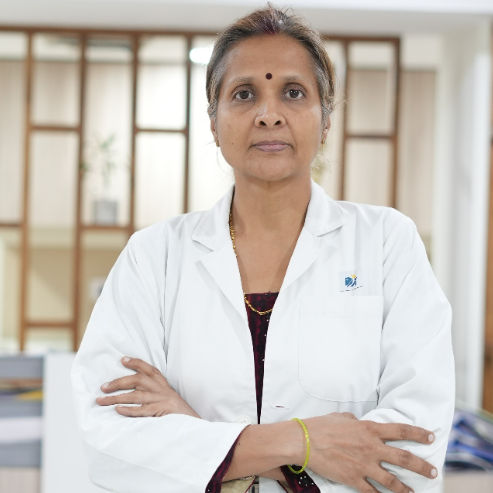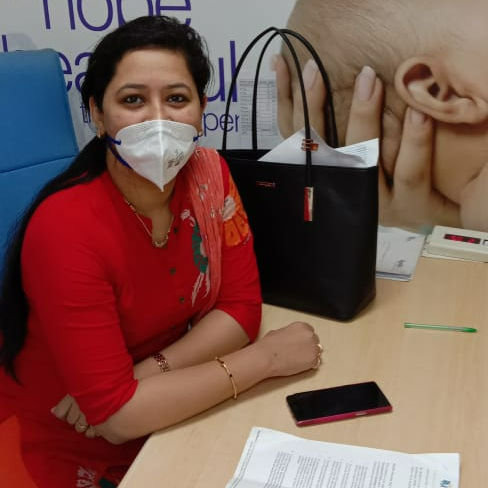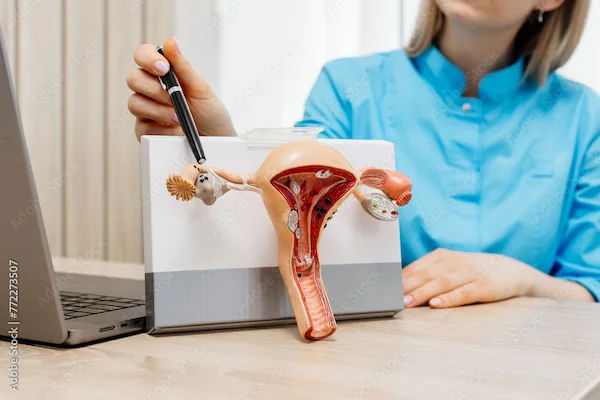Will I Get Hot Flashes After A Hysterectomy?
Wondering if you’ll get hot flashes after a hysterectomy? Learn how your symptoms depend on ovary removal, what to expect, and ways to manage them effectively.

Written by Dr.Sonia Bhatt
Last updated on 8th Jul, 2025

Introduction
If you’ve had or are considering a hysterectomy—surgical removal of the uterus—you may wonder whether hot flashes will follow. The answer depends on several factors, including whether your ovaries were removed during the procedure. Let’s break it down in simple terms so you can understand what to expect and how to manage potential symptoms.
Understanding Hysterectomy and Its Types
A hysterectomy is a surgery to remove the uterus, and sometimes other reproductive organs, depending on the reason for the procedure. There are different types:
1. Total Hysterectomy – Removal of the uterus and cervix.
2. Partial (Supracervical) Hysterectomy – Only the upper part of the uterus is removed, leaving the cervix.
3. Radical Hysterectomy – Removal of the uterus, cervix, and surrounding tissues, usually for cancer treatment.
What About Ovary Removal?
If your hysterectomy included a bilateral oophorectomy, removal of both ovaries, your body will stop producing oestrogen abruptly. This leads to what’s known as surgical menopause, often causing hot flashes and other symptoms.
If your ovaries are preserved, they may continue hormone production, and you may not experience menopause or related symptoms right away. However, some women may still notice symptoms due to reduced ovarian blood flow after surgery.
Consult Top Specialists for Personalised Health Advice
Why Do Hot Flashes Happen After Hysterectomy?
Hot flashes are sudden feelings of intense heat, sweating, and sometimes a rapid heartbeat. They occur due to hormonal changes, particularly a drop in oestrogen.
With Ovaries Removed: Since ovaries produce oestrogen, their removal causes an abrupt hormonal drop, triggering menopausal symptoms like hot flashes.
With Ovaries Intact: Some women still experience hot flashes if the blood supply to the ovaries is affected during surgery, leading to temporary or early menopause.
How Long Do Hot Flashes Last?
If you experience surgical menopause (ovaries removed), hot flashes can start within days and may last for several years, similar to natural menopause. If ovaries are preserved, symptoms may appear later but are usually milder.
Managing Hot Flashes After Hysterectomy
While hot flashes can be uncomfortable, there are ways to manage them effectively:
1. Hormone Replacement Therapy (HRT)
If your ovaries were removed, your doctor may recommend HRT to replace lost oestrogen and reduce symptoms.
HRT isn’t suitable for everyone—e.g., those with a history of blood clots or breast cancer—so discuss risks and benefits with your doctor.
2. Lifestyle Changes
Dress in Layers – Wear lightweight, breathable fabrics to manage sudden heat.
Stay Cool – Use fans, keep your bedroom cool, and sip cold water.
Avoid Triggers – Spicy foods, caffeine, alcohol, and stress can worsen hot flashes.
3. Diet & Supplements
Soy Products – Contain phytoestrogens that may help balance hormones.
Vitamin E & Black Cohosh – Some women find relief with these supplements, but consult your doctor first.
4. Relaxation Techniques
Deep Breathing – Slow, controlled breathing can reduce hot flash intensity.
Yoga & Meditation – Helps manage stress, which can trigger hot flashes.
5. Medications (Non-Hormonal Options)
Certain antidepressants like low-dose SSRIs or blood pressure medications like clonidine can help reduce hot flashes.
When to See a Doctor
If hot flashes are severe, disrupt your sleep, or affect your quality of life, consult a doctor. They can help tailor a treatment plan for you.
If you're experiencing persistent hot flashes after a hysterectomy, consider booking a consultation with a specialist on Apollo 24|7. You can get personalised advice and explore treatment options.
Final Thoughts
Hot flashes after a hysterectomy depend on whether your ovaries were removed. If they were, you may experience surgical menopause with symptoms like hot flashes. If they remain, symptoms may appear later or be milder. The good news is that with the right strategies—whether through HRT, lifestyle changes, or medications—you can manage them effectively.
Consult Top Gynaecologists
Consult Top Specialists for Personalised Health Advice

Dr Jaya Kumar Agarwal
Obstetrician and Gynaecologist
25 Years • MBBS , DGO , DNB (obstetric and gynecology) DGE diploma in Gyne endoscopy (Germany )
Delhi
Apollo Hospitals Indraprastha, Delhi

Dr. Vandana Sinha
Obstetrician and Gynaecologist
14 Years • MBBS, MS(Obs & Gyn), Fellow in Gynec-Onco. & Gynec Endoscopy
Ahmedabad
Apollo Hospitals Gandhinagar, Ahmedabad
(175+ Patients)

Dr. Vinita Sharma
Obstetrician and Gynaecologist
15 Years • MBBS, MD, MRCOG
Noida
Apollo Hospitals Sector 26, Noida
(75+ Patients)

Dr Bhawna Garg
Gynaecological Oncologist
26 Years • MBBS, MS, (PGI MS ROHTAK) FELLOWSHIP GYNECOLOGY ONCOLOGY, (CANCER INSTITUTE CHENNAI)
Delhi
Apollo Hospitals Indraprastha, Delhi

Dr. Humeena Taj C K
Obstetrician and Gynaecologist
11 Years • MBBS, DGO, DNB OBG
Bengaluru
Apollo Medical Center, Marathahalli, Bengaluru
Consult Top Gynaecologists

Dr Jaya Kumar Agarwal
Obstetrician and Gynaecologist
25 Years • MBBS , DGO , DNB (obstetric and gynecology) DGE diploma in Gyne endoscopy (Germany )
Delhi
Apollo Hospitals Indraprastha, Delhi

Dr. Vandana Sinha
Obstetrician and Gynaecologist
14 Years • MBBS, MS(Obs & Gyn), Fellow in Gynec-Onco. & Gynec Endoscopy
Ahmedabad
Apollo Hospitals Gandhinagar, Ahmedabad
(175+ Patients)

Dr. Vinita Sharma
Obstetrician and Gynaecologist
15 Years • MBBS, MD, MRCOG
Noida
Apollo Hospitals Sector 26, Noida
(75+ Patients)

Dr Bhawna Garg
Gynaecological Oncologist
26 Years • MBBS, MS, (PGI MS ROHTAK) FELLOWSHIP GYNECOLOGY ONCOLOGY, (CANCER INSTITUTE CHENNAI)
Delhi
Apollo Hospitals Indraprastha, Delhi

Dr. Humeena Taj C K
Obstetrician and Gynaecologist
11 Years • MBBS, DGO, DNB OBG
Bengaluru
Apollo Medical Center, Marathahalli, Bengaluru




